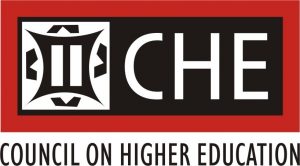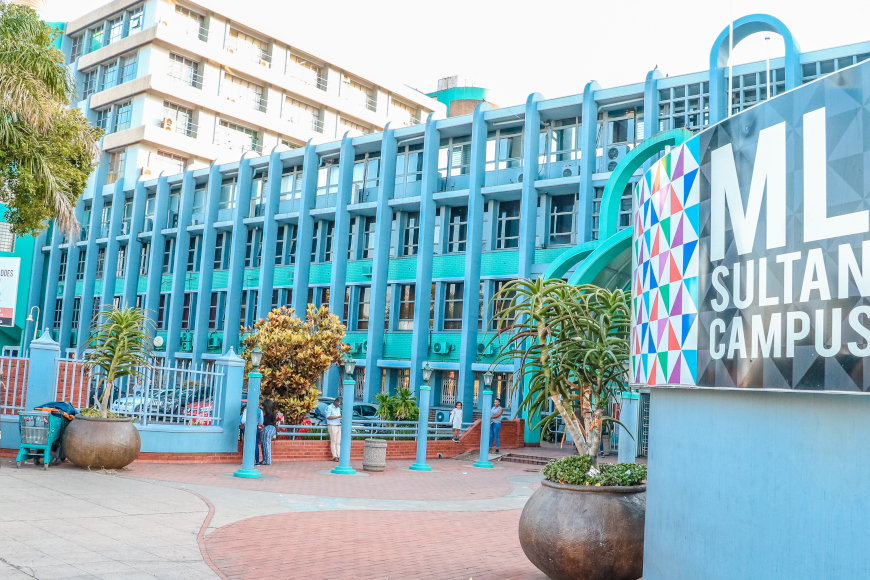The Institutional Audit Working Group members share insight into DUT’S preparation for Its Institutional Audit.
The Institutional Audit Working Group members are currently preparing for the Council on Higher Education’s (CHE) audit of the Durban University of Technology’s (DUT’s) quality assurance system for the period 2018 to 2021. The Institutional Audit cycle includes engagements with the CHE, the preparation and submission of a self-evaluation report (SER), a CHE panel site visit and a final audit report that includes recommendations for the expansion of a university improvement plan.
The university has put in place an Institutional Audit Working Group (IAWG) to manage the Institutional Audit preparation processes. The members are as follows:
Dr Paulette Powell, Project Manager: Institutional Audit
Mr Norman Ronald, Acting Director: CQPA
Mrs Sacha Maharaj, Specialist: CQPA
Mr Julian Vooght, Specialist: CQPA
Prof Runette Kruger, Executive Dean: Faculty of Arts and Design (Steering Committee representative)
Prof Fulufhelo Netswera, Executive Dean: Faculty of Management Sciences (Steering Committee representative)
Ms Vaneshree Govender, Research Innovation and Engagement ambit(Steering Committee representative)
QPOs:
Ms Nozuko Mbatho (Faculty of Arts and Design)
Ms Fathima Razack (Faculty of EBE)
Dr Nkululeko Gam (Faculty of Health Sciences)
Ms Esther Joubert (Faculty of Applied Sciences)
Mr Andrew Kamwendo (Faculty of Management Sciences).
CQPA Administrative Staff: Mrs Reshma Singh, Mrs Anusha Nagesar, Ms Nozipho Radebe, Mr Lungani Tembe, Ms Sam Phokoye
A central tenet of the CHE’s approach to institutional audits is to strike a delicate balance between accountability and improvement, requiring institutions to critically reflect on and account for what they do towards enhancing the likelihood of student success and providing their students with a quality experience, using their internal quality assurance processes. The CHE also requires the university to show that it is prepared for and can deal with disruptions (such as those caused by COVID-19 and student protests), without compromising quality.
Quality is understood to encompass fitness of purpose, fitness for purpose, value for money and transformation. Quality assurance is the process of putting in place and delivering on the strategic goals and purposes that an institution has identified for itself and the delivery of learning experiences that support students to succeed; it also refers to the process of evaluating and providing evidence of the extent to which institutions fulfil their own quality assurance objectives.
In preparing for the Institutional Audit, Dr Powell relayed that the university needs to reflect on its Quality Culture which the CHE describes as is a set of interrelated and enacted assumptions, values, attitudes, activities and behaviours, shared by academic and support employees at an institution that, together, function to deliver the desired quality of learning and teaching, research and community engagement determined by the strategic goals of that institution. The university must also reflect on initiatives developed and implemented to raise standards, and the quality of its provisioning beyond that of the threshold standards and benchmarks.
Under the guidance of a Steering Committee and the DVC: T&L, and with oversight by ambit committees and approval by EMC-Senex, the IAWG is currently primarily gathering input from our university people to complete the self-evaluation report (SER) which is due to be approved by institutional structures before 30 November 2022. The SER is a key component of the institutional audit and is intended to demonstrate through narrative and supporting evidence, the extent to which the university’s Integrated Quality Assurance systems, policies and procedures ensure the effective provisioning of good quality higher education that enhances the likelihood of student success through quality learning and teaching, research opportunities and integrated community engagement. The emphasis is on the deliberate, continuous, systematic and measurable improvement of the student experience.
 Self-evaluation needs to be understood as a meaning-making activity, and all levels and categories of staff, as well as units such as faculties and departments across the institution and across all sites of delivery, should participate, with the IAWG managing the process. Supporting documentation relating to CHE Standards (criteria) belonging to the identified focus area(s) is required as it serves as evidence to demonstrate how quality is managed at the university.
Self-evaluation needs to be understood as a meaning-making activity, and all levels and categories of staff, as well as units such as faculties and departments across the institution and across all sites of delivery, should participate, with the IAWG managing the process. Supporting documentation relating to CHE Standards (criteria) belonging to the identified focus area(s) is required as it serves as evidence to demonstrate how quality is managed at the university.
Over the past two months, the Institutional Audit Working Group (IAWG) has had meetings with staff and students across all ambits of the university, raising awareness of the Institutional Audit and explaining DUT’s approach which is inclusive and collaborative. the IAWG members are working with coordinators within the Teaching and Learning ambit and with representatives of support departments to obtain the information needed to provide an accurate reflection of the ways that the university’s quality system and processes function coherently to enhance our students’ experience and success.
The university’s Vice-Chancellor has made it clear that this is an institutional priority. It therefore requires the support and input of DUT students, staff members across all ambits, and engagement with those who are part of the broader university community. The Institutional Audit preparation approach has the full support of Executive Management. Thus all university people are expected not only to support the preparation process for completing the SER, but also to contribute by providing input about the ways in which quality is managed within their functional areas.
Pictured: ML Sultan campus.
Dr Paulette Anne Powell/Waheeda Peters


